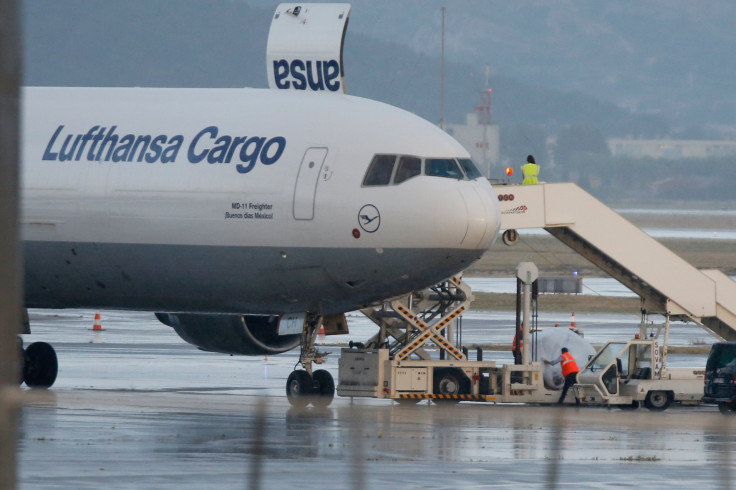Germanwings Flight 9525: Remains Of 44 Victims Arrive In Dusseldorf, A ‘Closure’ For Families

The remains of 44 victims of Germanwings disaster arrived in Dusseldorf early Wednesday, over two months after Flight 9525 crashed in the French Alps. They will reportedly be returned to the family members for burial.
Lufthansa, the parent airline of Germanwings, sent the coffins by cargo plane on Tuesday night from the French city of Marseille, according to reports. Families will be allowed to visit the coffins inside a hangar on Wednesday. Authorities reportedly said that the remains of the rest of the victims will be sent back over the coming weeks. A total of 72 Germans were on the Airbus A320, which was heading from Barcelona to Dusseldorf, when the plane’s co-pilot Andreas Lubitz allegedly locked the captain out of the cockpit and plunged the plane into an early descent. The crash killed all 150 people on board, including Lubitz.
"The families are in denial. They cannot and do not want to realize that their children are dead," Elmar Giemulla, a lawyer for some of the families, told Agence France-Presse, according to BBC. "It will be brutal when they see the coffins tomorrow, but it is necessary, because they need closure."
The passengers on board the plane were from 18 countries, including Australia, Argentina and Japan, but most were either from Spain or Germany.
Earlier this month, Lufthansa informed the relatives of the victims that the return of the remains was “temporarily interrupted” for an indeterminate period due to “new official instructions.” Authorities reportedly said the delay was due to the recent discovery of incorrect information in the victims’ death certificates, which rendered them invalid.
Investigators determined Lubitz had deliberately downed the plane on March 24, but the exact reasons for his actions remain unclear. Authorities had earlier said that Lubitz was suffering from depression and had been treated for psychological problems. In April, German prosecutors also said that the 27-year-old had researched about suicide methods and the security of cockpit doors.
Lufthansa’s CEO Carsten Spohr recently proposed randomized blood tests for its pilots to check for the presence of medications that may have been prescribed for certain psychological conditions. The U.S. Federal Aviation Administration (FAA) said last month that a panel of experts will analyze how the FAA monitors the mental health of commercial pilots, following the Germanwings accident and the missing Malaysia Airlines Flight MH370.
© Copyright IBTimes 2024. All rights reserved.











